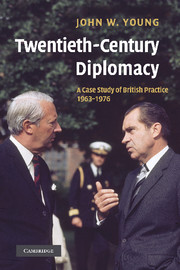Book contents
Preface
Published online by Cambridge University Press: 30 June 2009
Summary
I say, emphatically, that it is necessary to the wellbeing of the state to conduct diplomacy ceaselessly, either openly or secretly, and in all places, even in those from which no present fruits are reaped …
Cardinal Richelieu, from his Political TestamentAs chief minister of France during the Thirty Years War, Richelieu was one of the first statesmen to understand that, for foreign policy aims to be pursued effectively, ambassadors must be posted to a wide range of countries, not just a few select capitals. The methods of his diplomacy were an essential factor in the cardinal's success abroad. Yet historians have generally been reluctant to pay much attention to diplomatic practice as an important element of government policy. This book analyses the practice of one country in a particular period, based on archival sources and adopting a historical methodology. The focus is on Britain, a significant player on the world stage but one in ‘the second rank’, during the premierships of Alec Douglas-Home, Harold Wilson and Edward Heath, 1963–76. These years saw significant changes in diplomatic practice globally, as improvements in air travel contributed to a growing frequency of international meetings, and there was a rise in the number of both independent states and international organisations.
- Type
- Chapter
- Information
- Twentieth-Century DiplomacyA Case Study of British Practice, 1963–1976, pp. ix - xiiPublisher: Cambridge University PressPrint publication year: 2008



